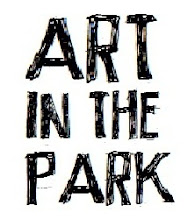Homing
Only the palest earthworms here,
in the undergrowth at Cuthbert Bank,threading in and out of leaf mould
below the collapsed lofts,
lofts where our thoughts used to roost.
Odd times they’d get flight shy,
perch on the roof, milling, cooing,
but when they took off,
synchronised as heart beats,
then you knew you were in with a chance: you could take them further,
set them free in places they’d never been.
Julie Mellor
*
Fay Musselwhite
*
Flight
from Cuthbert Bank
from
an autumn art walk
with
Emilie Taylor and Mark Doyle
In
search of pigeon lofts
we cross Philadelphia
Park where gusted leaves
from laden crab apple
trees chase over the scrub,
seed-blown flower heads
ball into skeleton fists,
and my palms itch when
dock-spikes rustle
their bright
cluster-crust.
Some
of us have memory-maps
to share, so we retrace
how Wales Road’s end
met the rise of Kelvin’s streets
in the sky –
a short-lived try to
flat-stack a neighbourhood.
Then
to the hillside opposite
we turn our gaze, led by
the potter who sketched,
in slip and scraffito,
men’s pigeon-kept hearts
on the shoulders of vases
a child could hide in;
wood-kiln fired them,
carried both down from the sky
and its edge to plinth-rest
in the hallowed half-dark
of the city’s main art
shed.
Under
instruction, out on the path,
we ink-roll glass to
catch the skyline: phone mast,
overgrown ski slope,
Pitsmoor’s Church of Christ
– all in reverse and
smudge-edged; find a line
or word to mirror-write,
hail each other’s art,
then bag it up to head
down Neepsend clough.
We
skirt the six-lane race,
part thin trees to tread
the dumped gear – teapot, tyre,
paint tin, plastic chair
– that bolsters the soft rot
of fallen weed flesh,
spent wood, topped
by a slither of leaves,
waxen and wet.
When
later we wheel
round and back up to peer
over that top road wall,
we’ll see how these
flaking roof terraces nestle
in rhododendron and
yellowing birch; lean further
for a bird’s eye view of
fly-bundled rubble sacks
where brazen new window
frames lounge;
bramble and buddleia bind
it all back.
Down
at the foothills
we clutch creeper-twigs
as we climb to the lofts.
Their ledges, when timing
those loaded returns,
must have been like
massive grins, each tooth a bird,
now collapsed to
grimaces, above the faded bloom
of panels tagged in
urban-runic fonts,
bedded
in, weathered,
rooted like they grew
there in the tangle-shrub.
A couple seem to topple
from the bank, one has lost
its horizontal hold, is
derailed so shifted slats
leer over the drop, its
cabin-body lodged
in dented trees, shaggy
in grassroots,
its gape creased shut.
Ten
years since the last
kept pigeon homed to
here. Back five more decades
to before they razed
Parkwood Spring and sucked
Neepsend dry: the valley
not this fleck of factory,
a filament between car
galleries
and abandoned hillside,
but
like a Lowry vision: a flock
of men released by work
clocks, to rise above
day’s end, the valley’s
din, legacies of grind,
to hold the small bulk,
feel its heat
pulse through feathers in
cupped hands,
and send those tiny
hearts and lungs
to claim their reach of
sky.
Fay Musselwhite
*
Cuthbert
Bank
Ringing the changes supplementing slave wages,
falling down sheds mark an era that’s dead.
Working class men with a tab and a pint,
punching the clock as their bird takes flight.
Banding and tagging the old boys are lagging,
as technology brings the changes to win.
Racing the homer with nothing odd to see,
squab, Ilion song as their ancestors fly free,
smoke grey flight over cooling tower industry,
rambling and racing as the voyageurs dance
here.
Northern man’s soul – more than a fancier.
Loftier heights view the world of the skies
edge,
new hope in full bloom dispels shadows of old
gloom,
bygone Steelers nurturing tomorrow’s youth
squeakers,
as they reach for the stars, in plumed aviation
Columbidae class reaches point liberation.
Alexandra Carr-Malcolm




.jpg)





